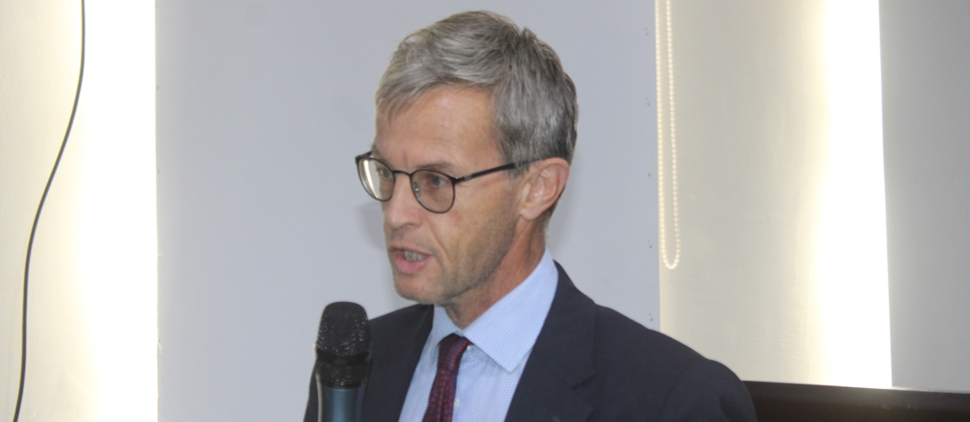The European Union has reaffirmed its support to South Sudan in transiting to a stable, peaceful and democratic society.
The EU Deputy Head of Delegation, Lothar Jaschke, made the commitment during the launch of the policy brief: “How to hold elections”, in Juba on Wednesday.
“Let us take the first concrete step with the elections, accompanied by a strong civil society,” he said.
“It is possible to organize elections in December 2026 and to have an inclusive and transparent electoral process if the political decisions are taken, the famous 10 points addressed and most importantly, the National Electoral Commission allowed to present its own timelines for preparing the elections and then deliver on them,” Jaschke asserted.
The EU envoy said the Union supports elections worldwide through electoral assistance and electoral observation; because elections give, people a sense of participation in the governance of their country.
“They legitimize those who govern and create accountability. Those who are elected have not won a prize but bear responsibility to serve the public. And are accountable to the public,” he added.
Jaschke regretted that there was, so far, no plan on how the Government of South Sudan wanted to steer the transitional period, pointing out the need for raising voices about the coming elections to avoid the mistakes of the past.
“Raising voices remains important, essential for a conducive environment, for political and civic space which any democracy needs like a fish needs water, like a flower needs the rain, like we need oxygen,” he said.
Progress in the various electoral process, Jaschke stated, will be conducive to international support. “Lack of progress – as we witness so far – and political will are rather discouraging,” he said.
He recalled that EU was the first and remains the largest donor concerning support for an enabling environment for holding elections.
“But elections are not an objective in itself, they should lead to something, to a peaceful and stable and democratic country. They will certainly lead to the end of the transitional period.”
Jaschke also pointed out that EU is a strong supporter of the peace process since the signing of the first peace agreement in 2015.
“Our overriding objective is peace. We also support the ongoing Tumaini talks with a view to come to a more inclusive peace process,” he said.




